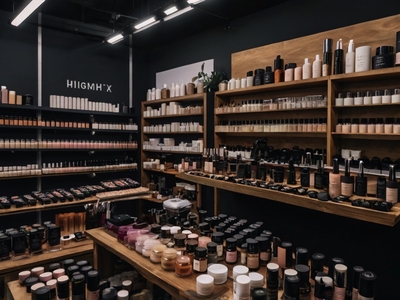The Vegan Cosmetics Market is gaining momentum as consumers increasingly prioritize ethical and sustainable beauty products. With a growing awareness of animal welfare and environmental concerns, the market is expected to see significant growth by 2031. This article explores the key trends shaping the future of the vegan cosmetics market, highlighting the drivers of this shift and what the industry can expect in the coming years.

Rising Consumer Demand for Ethical Products
One of the most prominent trends in the vegan cosmetics market is the rising demand for ethical and cruelty-free products. As consumers become more informed about the impact of their choices on animals and the environment, they are gravitating toward brands that align with their values. This shift is particularly strong among younger generations, who are leading the charge in demanding transparency and sustainability from the beauty industry. As a result, many brands are reformulating their products to exclude animal-derived ingredients and are obtaining vegan certifications to appeal to this growing consumer base.
Innovation in Plant-Based Ingredients
Innovation in plant-based ingredients is another trend driving the vegan cosmetics market. With advancements in biotechnology and natural ingredient sourcing, companies are developing high-performance vegan products that meet consumer expectations for quality and efficacy. Ingredients such as hyaluronic acid, which can be derived from plants, and vegan squalane, sourced from sugarcane, are becoming popular in skincare formulations. These innovations not only provide alternatives to traditional animal-derived ingredients but also offer enhanced benefits, making vegan cosmetics a competitive option in the beauty market.
Expansion of Product Offerings
The vegan cosmetics market is no longer limited to a niche segment of skincare products. The industry has expanded to include a wide range of offerings, including makeup, haircare, and even fragrances. This diversification is a response to consumer demand for comprehensive beauty solutions that adhere to vegan principles. For example, the rise of vegan makeup, including foundations, lipsticks, and mascaras, is a testament to the growing popularity of cruelty-free beauty. As more consumers seek out vegan options, the market is expected to continue expanding its product offerings to cater to diverse beauty needs.
Sustainability as a Key Driver
Sustainability is a crucial factor in the growth of the vegan cosmetics market. Consumers are increasingly concerned about the environmental impact of their purchases, and this is driving the demand for products that are both vegan and sustainable. Brands are responding by adopting eco-friendly packaging, sourcing sustainable ingredients, and reducing their carbon footprint. This focus on sustainability is not only beneficial for the environment but also resonates with consumers who are looking for products that align with their values. As sustainability becomes a central theme in the beauty industry, it is expected to further fuel the growth of the vegan cosmetics market.
Regional Market Dynamics
The vegan cosmetics market is experiencing different growth rates across various regions. In North America and Europe, where consumer awareness of vegan and cruelty-free products is high, the market is well-established and continues to grow steadily. In contrast, the Asia-Pacific region is emerging as a significant market due to increasing consumer awareness, rising disposable incomes, and a growing interest in ethical beauty products. As the vegan cosmetics trend spreads globally, brands are adapting their strategies to cater to regional preferences and regulatory requirements, which will play a critical role in their success.
Challenges and Opportunities
While the vegan cosmetics market is on a growth trajectory, it faces several challenges that could impact its development. One of the main challenges is the higher cost of vegan ingredients and production processes, which can lead to premium pricing. This pricing strategy may limit accessibility for some consumers, particularly in price-sensitive markets. However, this challenge also presents an opportunity for brands to innovate and find cost-effective solutions that maintain product quality without compromising on ethical standards. Additionally, the market offers opportunities for new entrants and established brands to differentiate themselves by focusing on transparency, sustainability, and social responsibility.
The Future Outlook
Looking ahead, the vegan cosmetics market is poised for substantial growth as consumer preferences continue to evolve. The emphasis on ethical consumption, coupled with innovations in plant-based ingredients and sustainable practices, will drive the market forward. Brands that stay ahead of these trends and address the challenges of cost and accessibility will be well-positioned to thrive in the competitive landscape. By 2031, the vegan cosmetics market is expected to be a mainstream force in the beauty industry, offering a wide range of high-quality, ethical, and sustainable products to meet the diverse needs of consumers worldwide.
In conclusion, the Vegan Cosmetics Market is set to flourish as ethical and sustainable beauty trends take center stage. The industry’s future lies in innovation, transparency, and a commitment to sustainability, making vegan cosmetics a key player in the global beauty market.
No responses yet